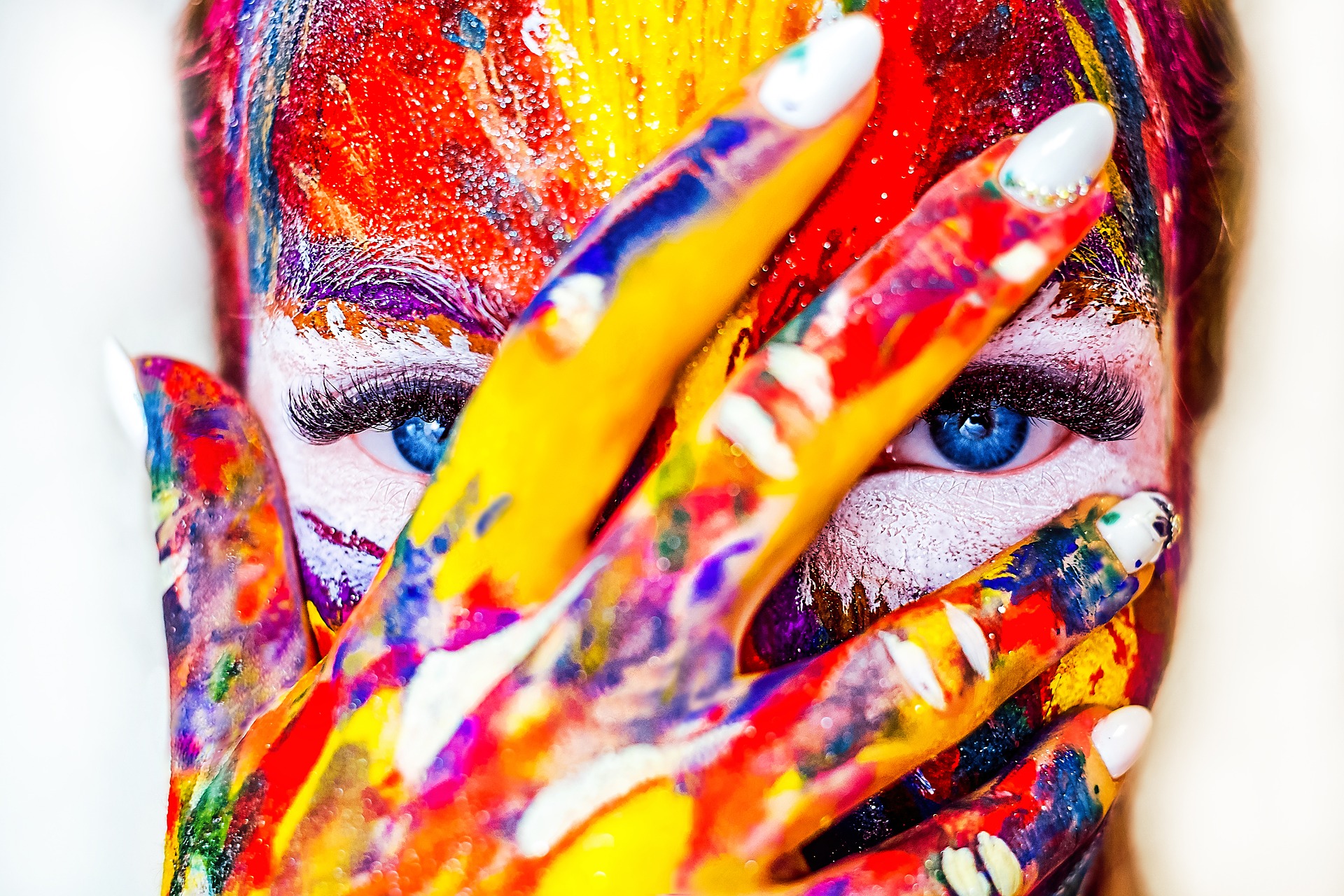 Participation in creative activities is linked with positive outcomes for people with mental illness. A recent small, longitudinal, and qualitative study found that participants in creative workshops enjoyed a range of creative mediums, valued peer support, and shared their stories. Overall, workshop participation improved confidence and understanding about their illness.
Participation in creative activities is linked with positive outcomes for people with mental illness. A recent small, longitudinal, and qualitative study found that participants in creative workshops enjoyed a range of creative mediums, valued peer support, and shared their stories. Overall, workshop participation improved confidence and understanding about their illness.
Author Mary Potter Kenyon has incorporated creative activities into her annual grief retreat. Her activities include making vision boards to envision life without a loved one, crafting homemade journals, rock-painting with uplifting and inspiring messages, and expressive writing. Kenyon said, “These creative activities are tools for healing. When we take an active, hands-on approach to our healing process, it gives back some sense of control to the person who experienced trauma. Most creative activities involve mindfulness and slowing down as a form of meditation, also beneficial to someone under stress.”
Dr. Jay Cavanaugh, The Vibe Mindset works with clients who struggle with pressure, anxiety, and overthinking. Cavanaugh sees a common theme with his clients where they think too far into the future and ruminate on it, resulting in the release of cortisol. “Creative arts are the most effective tool we've used to bring our clients from the stress of the future to the peace of the present moment,” said Cavanaugh. “When you shift your attention to a creative task such as painting, drawing, or putting a puzzle together, the mind shifts its focus to the next stroke or the next piece. The mind no longer focuses days, weeks, or months ahead; it focuses on the moment. As a result, clients have decreased cortisol levels, less anxiety, and more supportive thought patterns.”
Janet Ruth Heller, Ph.D. teaches creative writing and believes all ages can benefit from expressing emotions through writing. Heller sees clients gain an understanding of upsetting issues, and a sense of having more control over their lives. “One of my first creative writing students was a Vietnam veteran,” said Heller. “He wrote about his disturbing experiences, such as having to kill people on his twentieth birthday. This man found relief by finding words to express his trauma and sharing his poems with me and his fellow students. He was also able to publish his very moving poems. This former soldier's psychologist encouraged the creative writing and used poetry to help heal him.”
Dr. Christie Tcharkhoutian Kederian EdD, M.A.., MFT agrees that creativity is essential to well-being and helps clients engage their creative sides with music, writing, and poetry. Kederian thinks everyone has music, media or books they enjoy. “Through the exploration of why they are drawn to a creative outlet, we learn how they make meaning of the world and what gives life meaning and purpose,” said Kederian.“ I often assign homework to clients such as ‘make a playlist that reflects how you feel.' I also encourage clients to focus on natural enjoyment. If they hate drawing, I’m not going to force them to draw. But if they enjoy writing, then I encourage them to get a journal and write for five minutes, free form, without limitations in the morning. Sparking this creativity in the morning has benefits throughout the day for motivation, mood boosting, and mental health.”
Dimitri Vorontzov, founder of Superstar Screenwriters, see many people use storytelling to attempt to make sense of the world and their lives. Vorontzov explains, “A lot of my work with students is a form of therapy first – because they want their stories heard, and I am usually the first person to hear them. My job is to help writers connect to something within that brings them into better understanding of themselves and results in superior storytelling.”
Dayna Altman, MPH, Bake it Till You Make it LLC has a different approach, using food and baking to create mental health conversations. Altman said, “I use food as a way to combine something “normal” while sharing stories about mental illness. I host cooking demonstrations where I create metaphors between ingredients and my life.”
Whatever people choose, whether painting, writing, baking, or making musics, adults need to remind themselves of the value of play. Kara Latta, founder of The Playful Warrior, notes that we’re conditioned out of play as adults, to no longer see it as a priority, which she feels is a mistake. To truly connect with ourselves, Latta says we need play. “Play opens up what's possible for us and expands our life,” said Latta. It brings joy, fun, creativity, adaptability, productivity and improves our well-being. A relationship to play is important for our mental health, especially during the pandemic.”
Introducing play and creativity is a process to enjoy, not another activity to get focused on the outcome. Kenyon reminds us, “You don't have to be an artist to benefit from creative activities. Scientific research has proven that we are all happier and healthier when we find ways to fit creativity into our life.”
Tina Arnoldi, MA is a marketing consultant and freelance writer in Charleston SC. Learn more about her and connect at TinaArnoldi.com